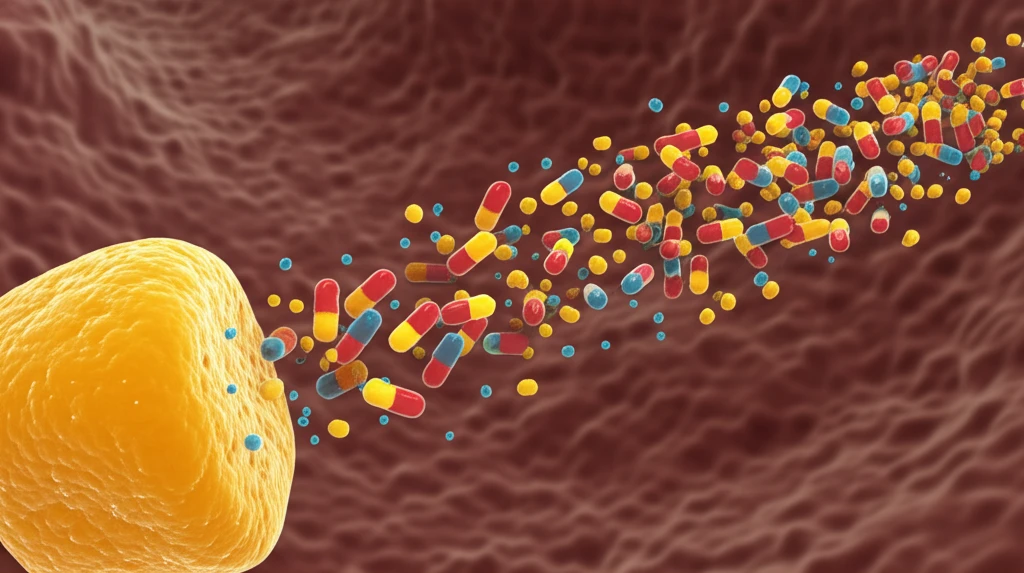
Unlock the Power of Microporous Corn Starch: A Natural Solution for Enhanced Drug Delivery
"Discover how modified corn starch is revolutionizing drug delivery systems, offering improved adsorption and controlled release for pharmaceuticals."
In the ever-evolving world of pharmaceuticals, finding effective ways to deliver medications is a constant challenge. Traditional methods often fall short, leading to inconsistent drug release and reduced therapeutic benefits. However, a promising solution has emerged from an unexpected source: corn starch. Specifically, microporous corn starch is gaining recognition as a superior material for drug adsorption and controlled release.
Microporous corn starch isn't your typical kitchen staple. It's a modified form of starch engineered to have a network of tiny pores, increasing its surface area and enhancing its ability to bind and release drugs in a controlled manner. This innovative approach offers several advantages over raw starch and other conventional drug carriers, making it a potential game-changer in the pharmaceutical industry.
This article delves into the science behind microporous corn starch, exploring its unique properties, its applications in drug delivery, and its potential to revolutionize how we approach medication. We'll uncover how this natural, cost-effective material is paving the way for more efficient and sustainable pharmaceutical products.
What Makes Microporous Corn Starch an Ideal Drug Carrier?

Raw corn starch, while abundant and inexpensive, has limited use as a drug carrier due to its low surface area and pore volume. This restricts its ability to adsorb and release drugs effectively. Microporous corn starch addresses these limitations through a modification process that creates a vast network of tiny pores on the starch granules.
- Increased Surface Area: The micropores dramatically increase the surface area available for drug adsorption, allowing for a higher drug loading capacity.
- Controlled Release: The porous structure enables a more gradual and sustained release of drugs, minimizing fluctuations in drug concentration and improving therapeutic outcomes.
- Biocompatibility: Corn starch is a natural, non-toxic, and biodegradable material, making it safe for pharmaceutical applications.
- Cost-Effectiveness: Corn starch is an abundant and inexpensive resource, making microporous corn starch a cost-effective alternative to synthetic drug carriers.
The Future of Drug Delivery is Natural and Innovative
Microporous corn starch represents a significant advancement in drug delivery technology. Its unique properties, combined with its biocompatibility and cost-effectiveness, make it a promising alternative to traditional drug carriers. As research continues to explore the full potential of this natural material, we can expect to see even more innovative applications emerge, leading to more effective, sustainable, and patient-friendly pharmaceutical products.
